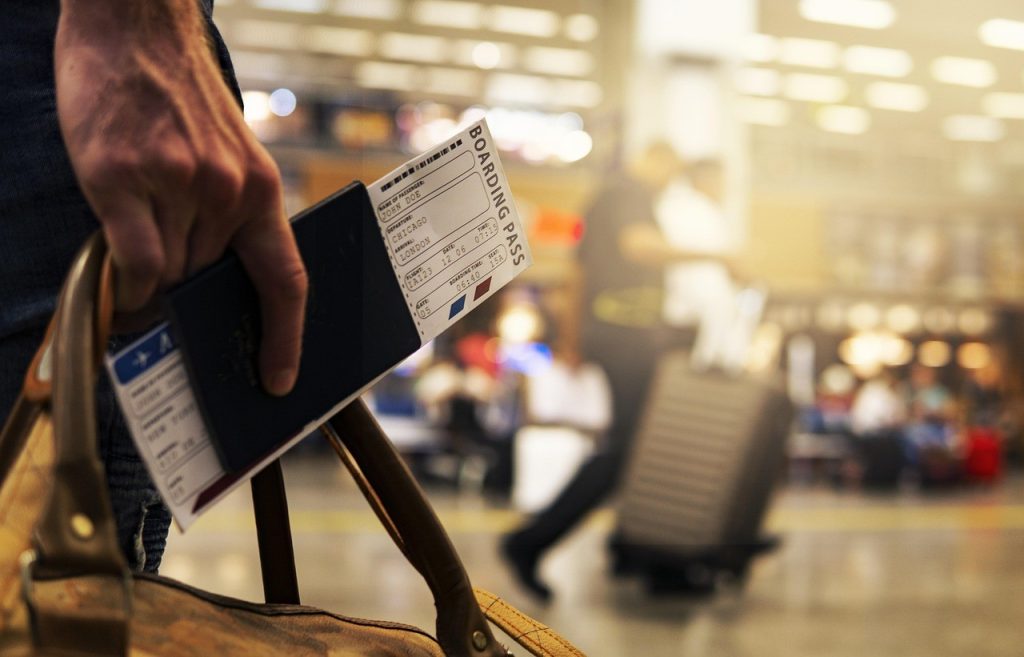By: Kaushik Srinath, Staff Writer

Photo Courtesy of pixabay.com
On September 19, 2025, President Donald Trump signed a proclamation, requiring a new $100,000 fee for H-1B visa applications, going into effect in 36 hours after signing. The decision was made citing the H-1B visa program had “been deliberately exploited to replace, rather than supplement, American workers with lower-paid, lower-skilled labor.”[1] In response to this executive action, a coalition of the United Auto Workers union, the American Association of University Professors, a nurse recruitment agency, several religious organizations and others filed a federal lawsuit on October 3, 2025, to stop the plan, saying it has “thrown employers, workers and federal agencies into chaos.”[2]
Signed into law under the Immigration Act of 1990 by George H.W. Bush, the H-1B visa program has been a staple of America’s immigration policy. It was created to address workforce needs by allowing companies to bring in foreign professionals with specialized skills that were difficult to find in the United States.[3]
To apply for and receive an H-1B visa, a U.S. employer must first offer a job to a foreign worker in a specialty occupation that typically requires a bachelor’s degree or higher.[4] The employer then submits a Labor Condition Application (“LCA”) to the U.S. Department of Labor, attesting that the foreign worker will be paid the prevailing wage and that hiring them will not harm U.S. workers.[5] Once the LCA is certified, the employer files Form I-129, Petition for a Nonimmigrant Worker, with U.S. Citizenship and Immigration Services.[6] Because the H-1B visa is capped annually, most applicants must first be selected through the H-1B lottery before the petition can be processed.[7] The employer must pay a filing fee in the range of $2,000 to $5,000; the new rules indicate a massive change to this filing fee.[8] If the petition is approved, the foreign worker may apply for an H-1B visa at a U.S. consulate abroad (if outside the country) or begin working for the employer on October 1st of the fiscal year for which the petition was filed.[9]
According to a joint press release from the Democracy Forward Foundation and the Justice Action Center, the new H-1B visa proclamation threatens to create severe workforce shortages across essential sectors of the U.S. economy.[10] Without judicial relief, hospitals stand to lose critical medical staff, churches could lose their pastors, classrooms may be left without teachers, and industries nationwide risk losing key innovators and skilled professionals who drive growth and innovation.[11] The organizations argue that the order’s sudden restrictions have thrown employers and workers into uncertainty, disrupting hiring and long-term planning.[12] Their lawsuit seeks to immediately block the proclamation and restore stability and predictability for both U.S. employers and the foreign professionals on whom they rely.[13]
The lawsuit’s basis is that President Trump does not have power under federal immigration law to restrict the entry of certain foreign nationals that would be detrimental to the interests of the United States.[14] Under the Immigration and Nationality Act (“INA”), Congress has the primary authority to establish and regulate immigration policy, including the creation of visa categories and the setting of associated fees.[15] The Constitution’s Appropriations and Taxing Clauses reserve the power to raise revenue and impose taxes or fees to Congress, not the President. Additionally, under the Administrative Procedure Act (“APA”), federal agencies like the Department of Homeland Security (“DHS”) and the State Department must follow formal rulemaking procedures before implementing new policies that substantially affect rights or obligations.[16]
The plaintiffs argue that President Trump’s proclamation unlawfully rewrote the statutory framework governing the H-1B visa program.[17] By imposing a $100,000 fee and restricting visa entry, the President allegedly exercised powers reserved to Congress; creating a new tax or revenue mechanism without legislative authorization.[18] Furthermore, they contend that DHS and the State Department implemented the proclamation’s terms immediately, without engaging in required rulemaking or assessing its economic consequences.[19] According to the plaintiffs, this lack of process and statutory authority renders the proclamation invalid under both the INA and the APA.[20] The plaintiffs also maintain that the proclamation harms U.S. interests by discouraging skilled foreign professionals, thereby depriving hospitals, schools, churches, and industries of essential talent and innovation.[21]
Regardless of the outcome, the court’s decision will have far-reaching consequences for those around the world striving to achieve the American Dream. If the court upholds the proclamation, it risks reinforcing the idea that success in America depends more on wealth than on merit. But if the challenge succeeds, it will reaffirm that the American Dream, built on the premise that anyone can rise through effort and ability, still belongs to all who have the courage to pursue it. This case is a defining moment of whether the United States can live up to that promise.
[1] https://apnews.com/article/immigration-h1b-visa-trump-8afc10165ce911d43a4cd47ade4268e1
[2] Id.
[3] https://www.pewresearch.org/short-reads/2025/03/04/what-we-know-about-the-us-h-1b-visa-program/
[4] https://www.docketwise.com/blog/h-1b-process/
[5] Id.
[6] Id.
[7] Id.
[8] Id.
[9] Id.
[10] https://democracyforward.org/updates/h1b-statements/
[11] Id.
[12] Id.
[13] Id.
[14] https://democracyforward.org/wp-content/uploads/2025/10/1-Filed-Complaint_H-1B-Global-Nurse-Force-et-al-v.-Trump-et-al.pdf
[15] Id.
[16] Id.
[17] Id.
[18] Id.
[19] Id.
[20] Id.
[21] Id.